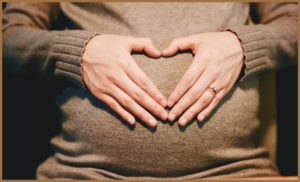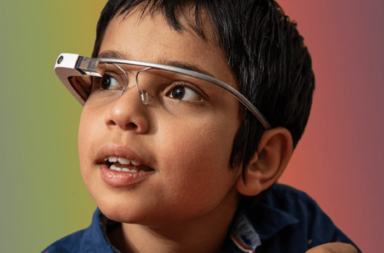From the moment I flipped over my calendar and welcomed in March, I have been hyped to write this autism news roundup. It’s not often that our community is making national headlines but the start of March changed that and things only escalated from there.
As such, today, it brings me great delight to recap the events of the month gone by and, trust me, when I say that you should be excited too (As always, links to the full stories can be accessed by clicking on the red titles and the bold headings).
Honourable Mentions:

(Photo Credit: RSC Matilda The Musical)
Whilst, for one reason or another, the news items which follow have found themselves as ‘honourable mentions’, I’m certain that, on any other month, any one of these could have been featured in the top 5. Therefore, I encourage each and every one of you to check out as many of these stories as possible as they are moments you don’t want to miss out on:
- Comedian Amy Schumer opens up about her autistic husband
- National Autistic Society trial a new show: Spectrum Live
- Mikey Kay finally shares the story of his brother in ‘My Autistic Brother and Me’
- According to a new study, people born in April are least likely to be autistic
- The Autism Professionals’ Conference celebrates its 10 year anniversary
- Trump cuts funding to the Special Olympics (because of course he did)
- Virgin Flights launch hidden disabilities scheme
- Autism-led children’s TV show Pablo comes to Netflix
- Woman who stole $330,000 from autism charity starts confession with ‘You’re going to hate me’ (she is correct)
- Royal Shakespeare Company announces the success of 6th sell out relaxed performance
The Top 5 Autism News Pieces for March 2019:
5. New Findings Highlight a Shocking Lack of Diversity in Old Studies

Combining multiple pieces of autism news into one, two studies published in March have found that, when it comes to autism research, the last 5 years have been anything but diverse. This news comes our way after investigations were done into the age range of autistic people used in studies, as well as an investigation into the ethnic origins of research subjects – and, yep, you guessed it young, white, males made up the majority of autism studies.
While I’m sure some may have already seen this coming, it’s the extent to which this demographic has been over-represented that I find most alarming as, while ¼ of the world population is European & North/South American, these nationalities currently make up 78% of all studies. Furthermore, while autism is known as a lifelong condition, 84% of studies consist of autists who are 18 or under.
This is cause for concern as it means that many genetic factors are not being fully assessed when conducting research on autism and, while I was unable to find any similar breakdowns of the gender split in autism studies, the chances are they would also prove that the eggheads really need to get their act together.
4. Amazon Removes Harmful Books Containing ‘Autism Cures’

After a justifiably scathing exposé from Wired; in which a reporter was able to get a fake book, promoting bleach as an autism cure, onto Amazon within 2 hours, last month the retail juggernaut finally made the long overdue move of taking down many of the books on its site which are said to contain similar, if not more extreme, ‘autism therapies’.
Amongst those taken down, the supposed cures ranged from: the harmless yet obscure camel milk/yoga down to the more heinous Chelation – a chemical which is used to strip metal from a body and was listed as the cause of death of a five-year-old autist in 2005.
While Amazon’s efforts show that things are looking up, for better online regulation of autism information, reports made in mid-March show that, despite many dangerous books being removed during the purge, there are still more with inexplicably high review scores, readily available on the online one-stop shop.
3. DVLA U-Turns on New Autism Policy

In what was no doubt one of the most confusing starts to a month this community has seen, on March 1st, The Driving and Vehicle Licencing Agency, in Britain, announced that all autistic drivers would have to declare their condition to the authority or face a £1000 fine.
Understandably, this decision was quickly criticised by many in the autism community, as there has not (and is not) any evidence suggesting that autism impacts on someone’s driving.
Furthermore, many in the community believe that ruling was unfair because, as David (from the Autistic & Unapologetic Facebook) stated ‘If anything [autism] makes me a more cautious driver, certainly I’m not one for taking chances’.
Thankfully, the DVLA has now seen sense and instructions on their website have returned to stating that autism only needs to be disclosed if it seriously impacts on driving. However, there is no doubt that even this may have been too late for people like James (from the Autistic & Unapologetic Facebook Group) who described the event as ‘yet another administrative burden bearing down on my regularly overloaded brain’.
2. 650,000 Children Disprove Anti-Vax Claims

In one of the largest studies of it’s kind (if not, the largest), this March researchers from the University of Copenhagen in Denmark, and Stanford University School of Medicine in the US, once again proved that there is no correlation whatsoever between getting your child vaccinated and them developing autism (shock horror).
This news comes after a study, of over 650,000 children, taking place over 8 years, found that, of the children who received the MMR vaccine when they were young, only 1% were later diagnosed as autistic – a figure which is largely in line with world averages (if not slightly lower).
It should also be noted that, during this time, Measles were eliminated in Denmark (one of the diseases MMR seeks to eradicate). However, here we are having to potentially backtrack on this achievement because of a select few idiots whose fear of having a child with autism is worse than that child developing a life-threatening disease.
1. Autistic Activist is Favourite for Nobel Peace Prize

(Photo Credit: AFP)
Remember in March when students around the globe went on strike to raise awareness of Climate change? – Yeah, those protest, which Theresa May openly called out because, apparently, one day’s worth of education is more important than the inability of our planet to sustain human life (and I thought her dance moves were bad). Well, as it turns out, the whole ‘Youth Strike’ movement was engineered by one Greta Thunberg, a 15-year-old autist, who days later was nominated for a Nobel Peace Prize.
Thunberg, who originated from Sweden, is no stranger to the activist life however as, before the March strikes, the steadfast student had been protesting outside Riksdag (the Stockholm’s parliament house) for 7-35 hours a week – something which started August 2018 when Thunberg saw her country hit hard by heat waves and wildfires.
Not content with being nominated for a Nobel Peace Prize & continuing with her battle against climate change, Thunberg would later return to the headlines on April’s World Autism Awareness Day, when she published a picture of herself with the statement:
“No, autism is not a ‘gift’. For most, it is an endless fight against schools, workplaces and bullies. But, under the right circumstances, given the right adjustments, it CAN be a superpower”
Carry on the Conversation:
As March was so busy I wouldn’t be surprised if I missed more than a few headlines so, if you have any you would like me to add, let me know in the comments below. And, If you want to hear more inspiring autism quotes, then follow this link to a list of my 30 Favourite Quotes from World Autism Awareness Day.
As always, I can also be found on Twitter @AutismRevised and via my email: AutisticandUnapologetic@gmail.com.
If you like what you have seen on the site today, then show your support by liking the Autistic & Unapologetic Facebook page. Also, don’t forget to sign up to the Autistic & Unapologetic newsletter (found on the sidebar on laptops and underneath if you are reading this via mobile) where I share weekly updates as well as a fascinating fact I have found throughout the week.
Thank you for reading and I will see you next Saturday for more thoughts from across the spectrum.


